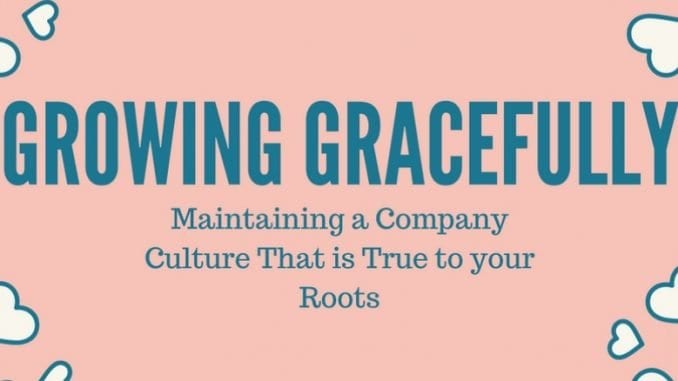
We hear terms like “mom and pop shops” or “family-like business” all the time, but is this actually a good thing? In this series, we’ll explore what it means to grow gracefully, as well as the differences between a family-vibe and a professional setting in the café.
BY LUKE DAUGHERTY
SPECIAL TO BARISTA MAGAZINE
Volume 1
When building their businesses, coffee shop owners and their employees are often faced with a seemingly impossible choice. Do you want to create something familial and friendly, or professional and distant? Do you set strict rules, or do you let your staff make decisions for themselves? It’s an age-old tension: in business, both paths feel like losing. And, as recent events with companies like Four Barrel make clear, neither path has the obvious moral high ground, and either one can potentially be harmful to staff.
But perhaps these aren’t the only choices. Maybe there is a third path, one that avoids the pitfalls on either side. In this three-part series, we’ve invited a number of experienced coffee professionals and business owners to talk about what that path looks like and how to find it. The good news is: There is a way to walk this line, and with clear vision, self-awareness, and good communication, any company can move toward a healthier model.
Whether you are an owner, manager, or a barista, you can contribute to a company culture that is both caring and professional. In this series, we’ll explore six keys to achieving that goal, starting with the first two this week.
Key #1: Know what you want.
The most basic mistake most business owners make is simply not to think about company culture at all. “Really defining it is the first step,” says Kathy Turiano, business owner of 30 years and current co-owner of Joe Bean Coffee Roasters in Rochester, N.Y. “I don’t think defining company culture is always as high a priority when you’re starting a business. We think about our product, process, brand, team, etc., but we don’t always think as much about how we want our employees to feel when they work for us. But it’s just as important as how our customers feel.”
In other words, make the company culture a part of your business plan. While it might be easier to quantify profit margins, marketing plans, and labor schedules, these things are ultimately dependent on your culture, not vice versa. A healthy, clearly defined company culture influences morale, which in turn directly affects your bottom line.
“I think culture is based on your values, your expression of those values, and your team that you bring on to execute those values,” says Maxwell Mooney, co-owner of Narrative Coffee, which opened last year in Everett, Wash., with an emphasis on creating a strong, connected, and relational culture. “We, as a fresh business, have attempted to establish our company culture in a way that is both convivial and professional.”
So, if you’re in the planning phase for your new shop, have you taken the time to think about your core values, and what kind of culture should flow out of those values? If not, set aside your design templates and financial forecasts for a moment and give it some thought. If you’re in an established company, you can still step back to consider your values—do you know what they are, and what kind of culture you want? This is a critical first step toward company health.
“When you aren’t intentional about the culture that you’re trying to create in your own business,” says Kathy, “whatever culture bubbles up is the culture that will be there.”
Key #2: Understand the influence of your own personality and preferences.
When you’re starting a business or drowning in the workload of running one, it’s easy to forget that you—as in you, the unique person—are one of the biggest factors in shaping your company’s culture. Don’t skip the essential step of developing your own self-awareness.
“So much of the DNA of smaller companies comes from who the owners are” says Kathy. “I think there are always owners or managers that are more ‘people-oriented’ and ones that are more process- or numbers-focused.” These and other traits and preferences will inevitably shape the culture, so having an awareness of them from the outset will enable you to be more intentional.
This is true especially if you’re in a partnership with other owners or managers, where multiple personalities are at play. Mike Marquard, one of six original founding members behind St. Louis’ Blueprint Coffee, learned this lesson early. “One of the most challenging things as a company is how different we are as people,” he says. In the early days of Blueprint, he explains, the partners needed to learn how each of the others would think about the company, and work toward creating something that factored in all of those perspectives. “If we were oblivious to that, I don’t even think we would be a company anymore,” he says.
Ultimately, however, your own dispositions shouldn’t confine the culture. What’s important, Kathy emphasizes, is that you have a desire to mature into a leader who can provide the right foundation for a healthy company. “Supporting people and making them feel good about their jobs can really be part of any company,” she says. “It just depends on the leader. I think when you decide to be that kind of leader, it takes not just more intentionality, but more of you.”
If you take the time to reflect on yourself and your vision, you’ll be better prepared for the next steps toward developing this type of leadership in yourself and your company. We’ll explore those steps next week.
 ABOUT THE AUTHOR
ABOUT THE AUTHOR
Luke Daugherty has been in the coffee industry for more than 13 years, working as a barista, roaster, and café manager along the way, all the while growing more intrigued with this lovely beverage we all can’t get enough of. He’s an SCA-certified green coffee buyer, and he lives with his wife and three children in Louisville.

